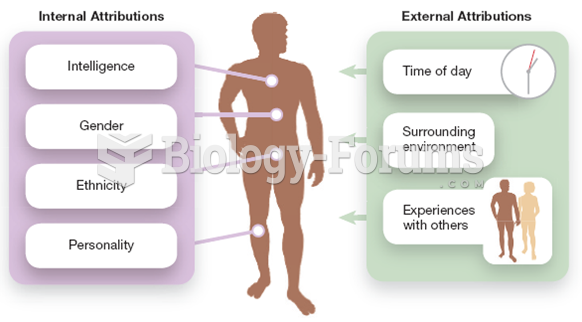|
|
|
Only one in 10 cancer deaths is caused by the primary tumor. The vast majority of cancer mortality is caused by cells breaking away from the main tumor and metastasizing to other parts of the body, such as the brain, bones, or liver.
The human body produces and destroys 15 million blood cells every second.
The average human gut is home to perhaps 500 to 1,000 different species of bacteria.
This year, an estimated 1.4 million Americans will have a new or recurrent heart attack.
When Gabriel Fahrenheit invented the first mercury thermometer, he called "zero degrees" the lowest temperature he was able to attain with a mixture of ice and salt. For the upper point of his scale, he used 96°, which he measured as normal human body temperature (we know it to be 98.6° today because of more accurate thermometers).
 (a) Blue arrows (right side): External components of the innate immune system: human body with skin, ...
(a) Blue arrows (right side): External components of the innate immune system: human body with skin, ...
 Standing at the head of the table, apply oil or lotion to the entire back with bilateral stroking. ...
Standing at the head of the table, apply oil or lotion to the entire back with bilateral stroking. ...





